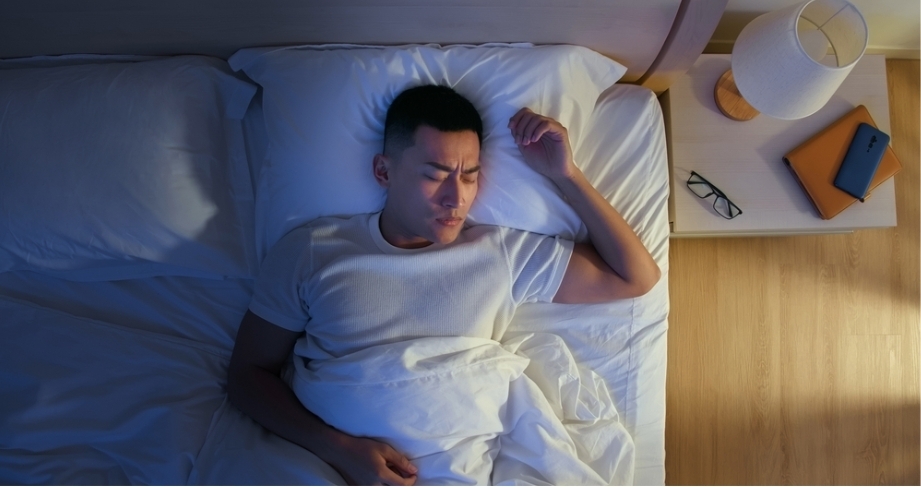
At some point in our lives, for whatever reason, we’ve all had problems falling asleep. And, if you think about it, it’s completely normal - sometimes the reason might be stress, a particular (upcoming) situation you keep thinking about, or you just didn’t do anything tiring during your day and your body doesn’t need sleep.
Where this becomes a problem, though, is when those sleepless nights begin to pile up and become a common occurrence.
This is where you need to step in and try doing something about it, since lack of sleep can lead to some serious health problems such as:
-
Inability to focus
-
Cardiovascular disease
-
Obesity etc.
So, is there anything we can do to fight insomnia and improve the quality of our sleep? Of course, and that’s what we’re going to talk about in the upcoming paragraphs.
How To Fall Asleep Faster?
Before even talking about sleep quality, we need to focus on falling asleep in the first place.
Establish A Good Sleep Routine
Often referred to as good sleep hygiene, a good sleep routine is one of the most instrumental tools in your sleep arsenal. But what does it mean exactly?
Good sleep hygiene consists of habits you can repeat each day, before going to bed, that are going to ensure you fall asleep fast and have a restful night. These include:
-
Setting aside a time to wind down before actually going to bed - this is one of the biggest problems we find in people having trouble falling asleep. Why? Just think about what most generally do before going to bed? Watching TV or, even worse, scrolling their favorite app on their phone. Of course, there is nothing wrong with spending some time on your phone but if you decide to do it just before getting to bed, the blue light the electronic screens emit can disrupt our body’s production of melatonin (which is a hormone that regulates our sleep). This is why most researchers suggest you stop using your phone at least 1 hour before going to bed.
-
Reading or meditation - for some of you, not using electronic devices will help you fall asleep on its own, but if you still need an activity to pass the time, you can pick up on reading or meditation. Both these activities (unless you are reading some particularly disturbing content) will help loosen you up, relax and prepare your body for the deep sleep it’s aching for.
Creating A Good Sleep Environment
This is not something people generally think about when going to sleep (some do it instinctively without even thinking about it) but setting up the right sleep environment will help you relax and go to sleep faster.
Since we are all different and have our own idea of a pleasant sleeping environment, there is no one size fits all, but some general recommendations are:
-
Using adequate blinds to keep the room dark
-
Getting the room you’re sleeping in to the right temperature (a cooler room is generally better to fall asleep in)
-
Making sure your sheets are clean and everything is set up to your liking
Diet And Exercise
Though this sounds like a ”cliche” advice, it’s still one of the most effective and recommended ones - a healthy diet and regular exercise will help you have a more restful sleep. Of course, the opposite is also true - unhealthy diet and lack of exercise can disrupt your sleeping pattern. Drinking coffee, alcohol or any other stimulants can also prevent you from falling asleep as they will make you more alert.
This is why you should not drink coffee or alcohol at least 1-2 hours before going to bed, or eating a particularly large meal.
Using Supplementation
Supplementation is something you should generally try after you’ve tried all the techniques we’ve listed above.
When talking about supplementation, here’s a list of the most commonly prescribed sleeping aid supplements:
-
Valerian root - valerian is a plan commonly prescribed for depression and anxiety, but also the most commonly prescribed natural sleeping aid
-
Magnesium - magnesium is involved in thousands of processes in our body, from brain function to heart and muscle health. In addition to these functions, magnesium can also help our body calm down, thus helping us fall asleep faster.
-
Lavender - no, we’re not suggesting you take lavender before going to bed, rather using its soothing scent to help create a better, more pleasant sleeping atmosphere and, indirectly, help yourself fall asleep faster
-
Medical supplementation - if you’re looking for some “off the shelf” supplements, there is one emerging as one of the more interesting and effective solutions - peptides. Some peptides (such as sermorelin and CJC1295) interact with a chemical called serotonin, a neurotransmitter that’s regulating our sleep-wake cycles. Using peptides can help regulate these sleeping patterns and improve the quality of your sleep, so hop on to your local peptide shop and see if you can find any of the two listed above.
Final Words
Many people struggling with the inability to fall asleep or have poor sleep quality, feel like there’s nothing they can do about it; that sleeping is the body's natural process that they cannot affect. But, as you saw in the previous paragraphs, this couldn’t be further from the truth.
There is a lot you can do to help relax your body and get it set up for the night ahead. You should avoid electronics screens, drinking or eating excessively 1-2 hours before going to bed, make sure you go to bed at the same time each night and set up a relaxing atmosphere that’s going to help you relax. On top of that, you can introduce some supplementation to ensure your success!
And if you are still unsuccessful, you should consider looking for professional help.
Source: Story.KISSPR.com
Release ID: 900174
